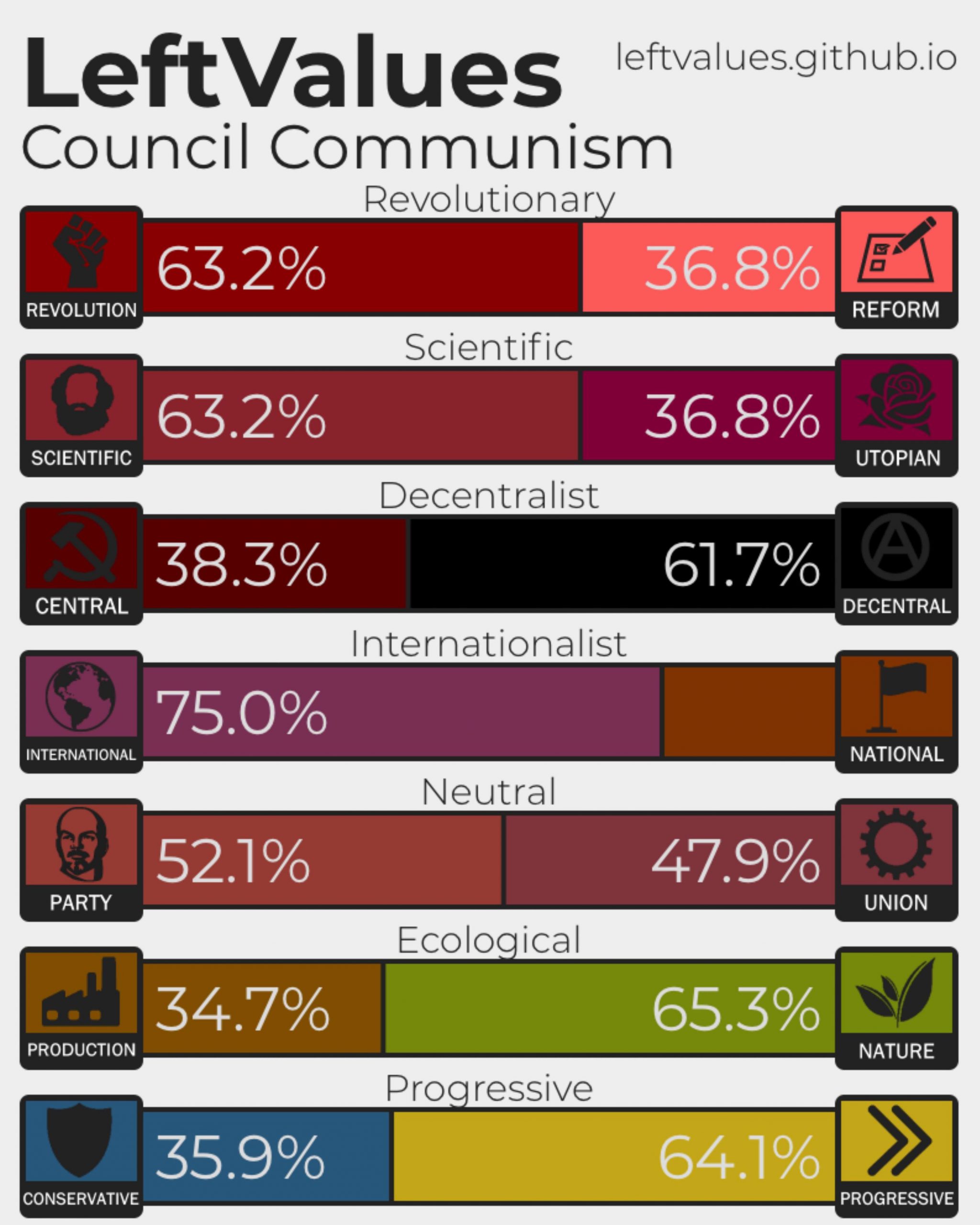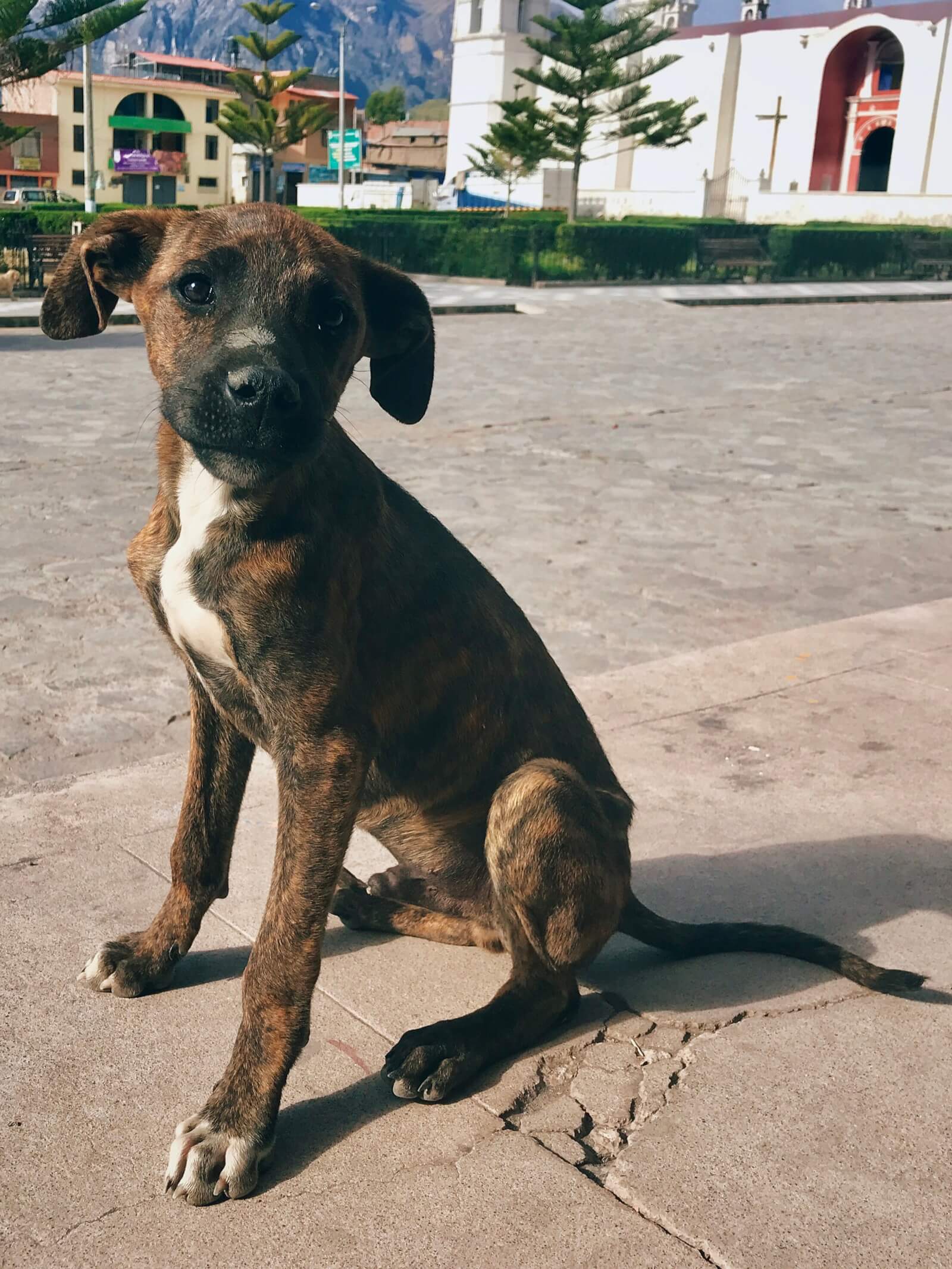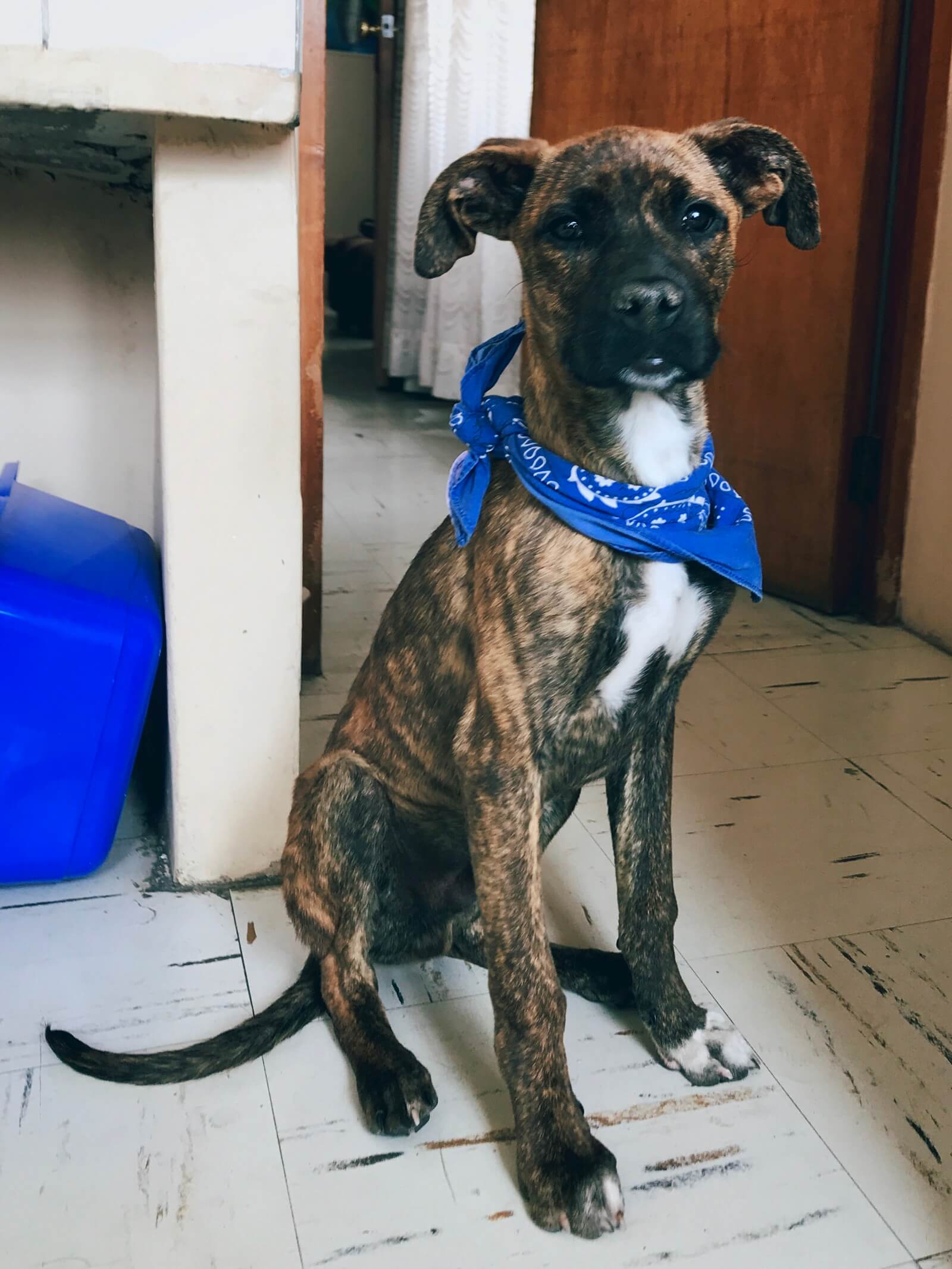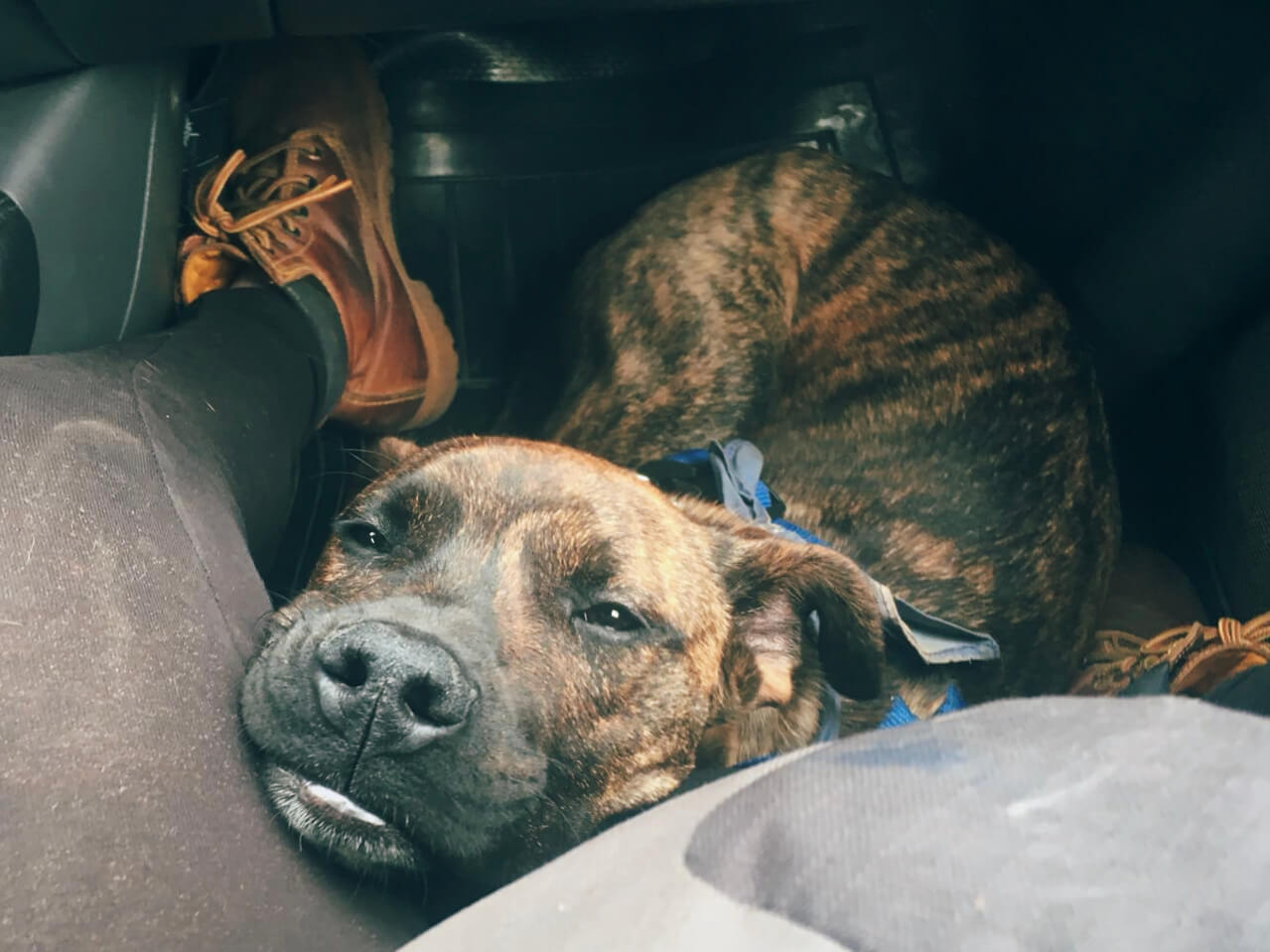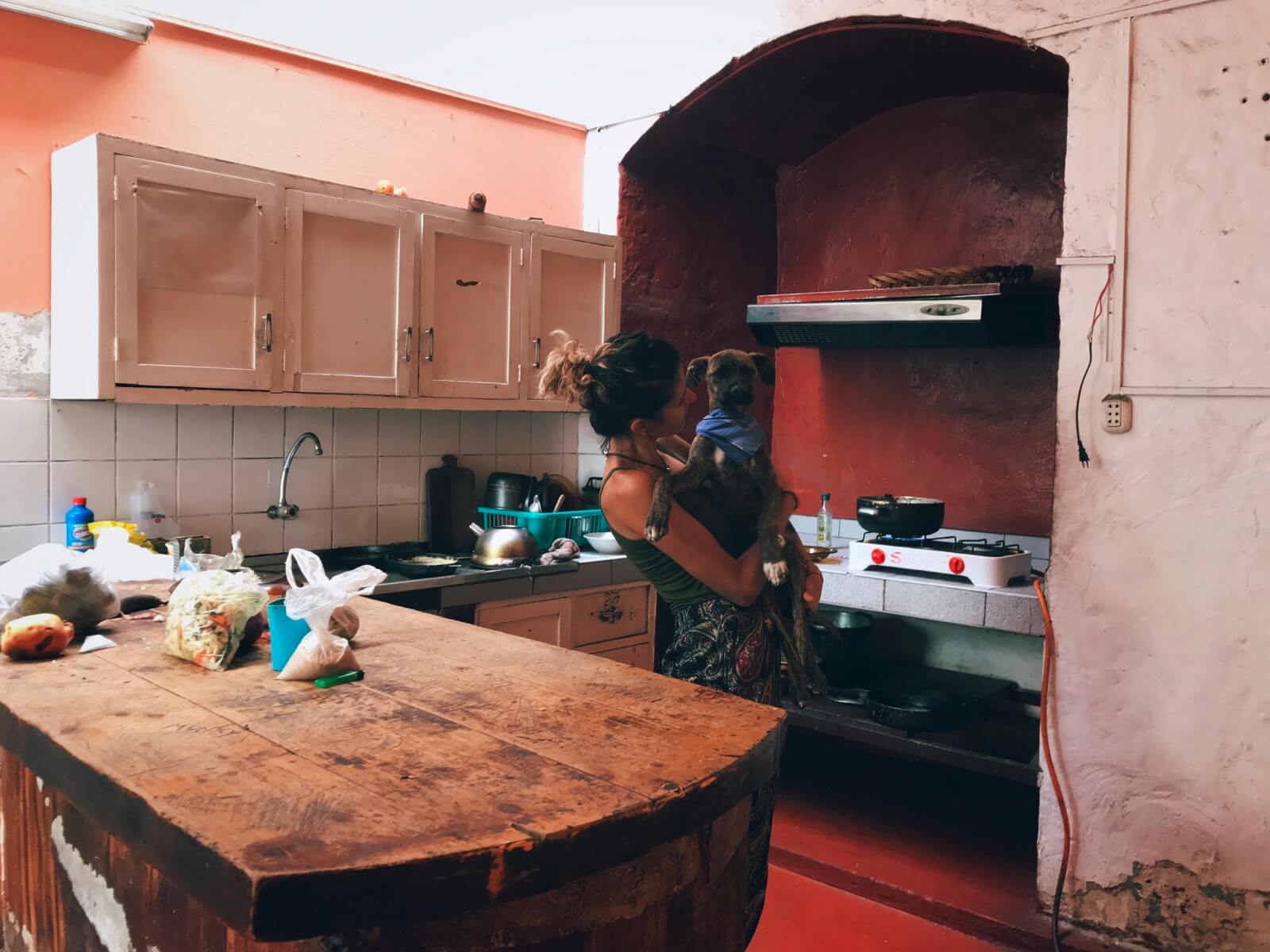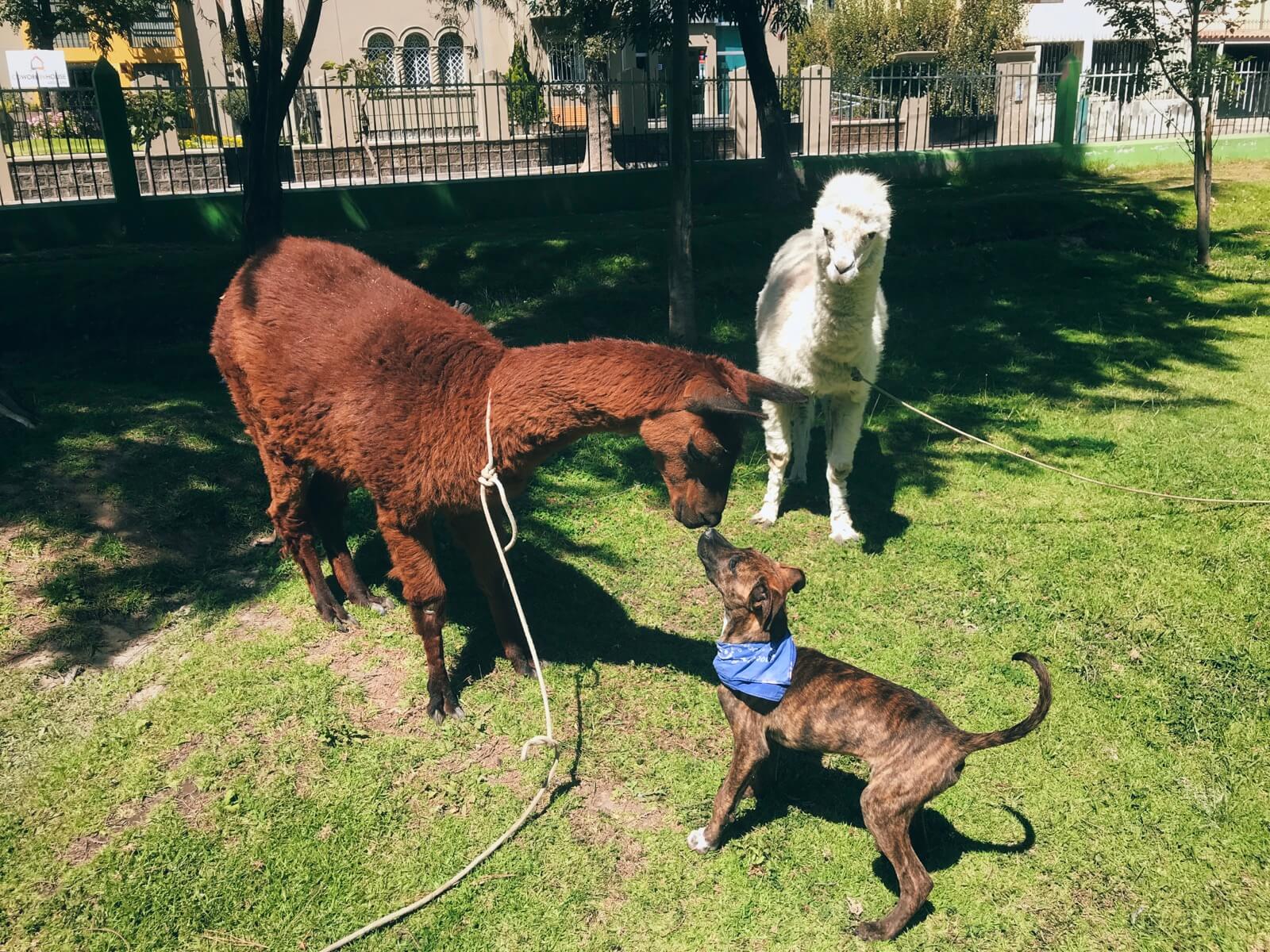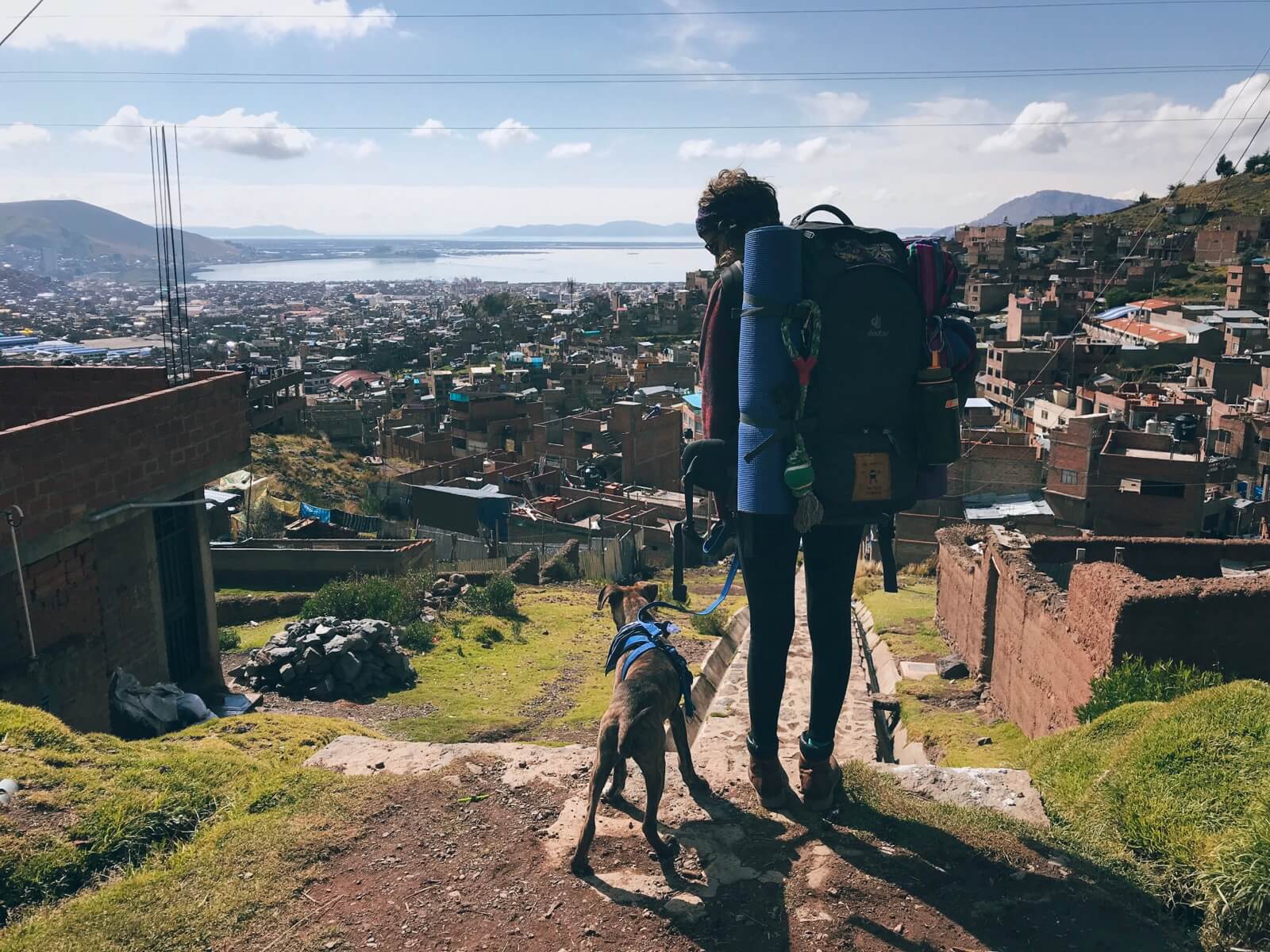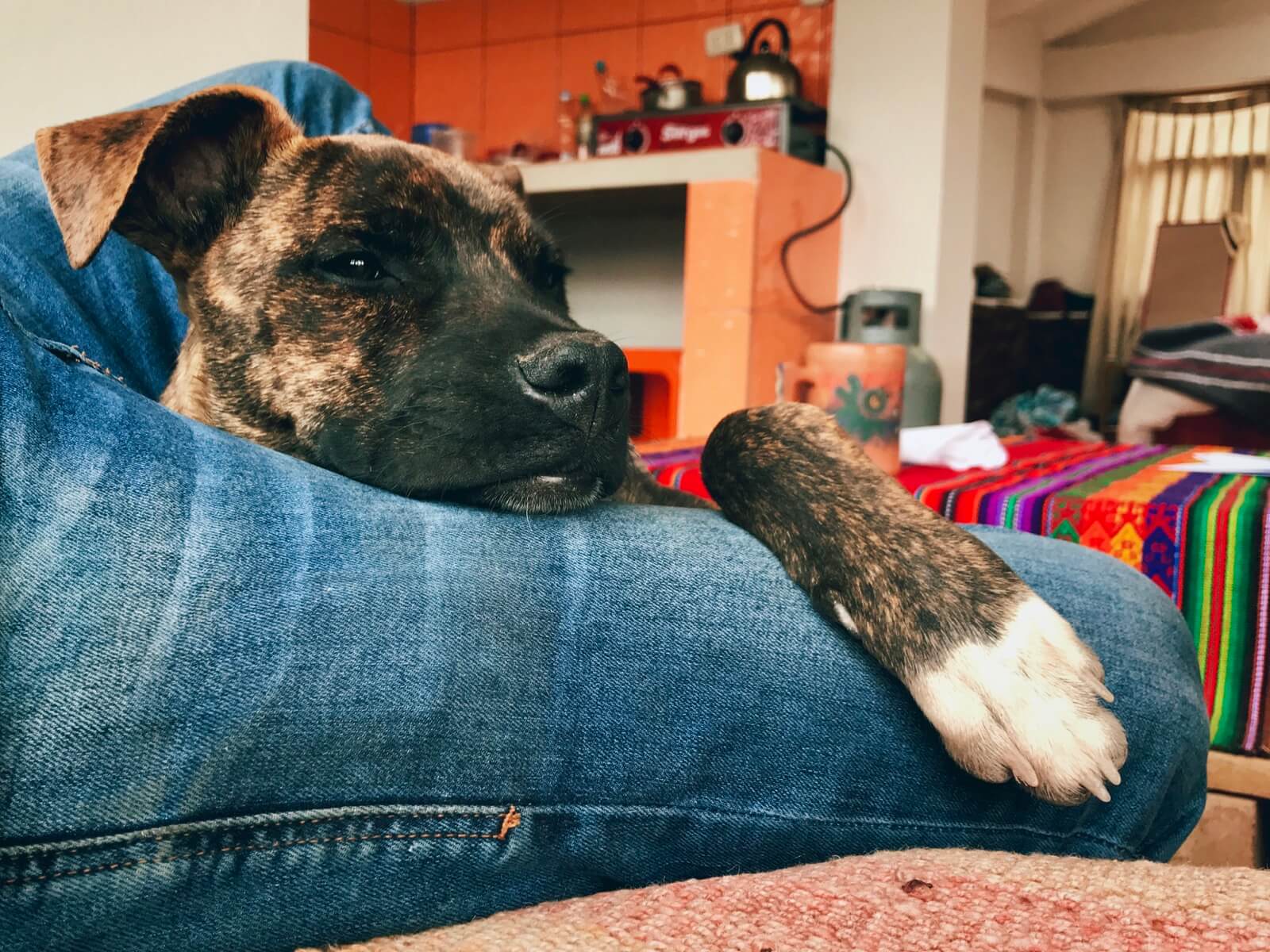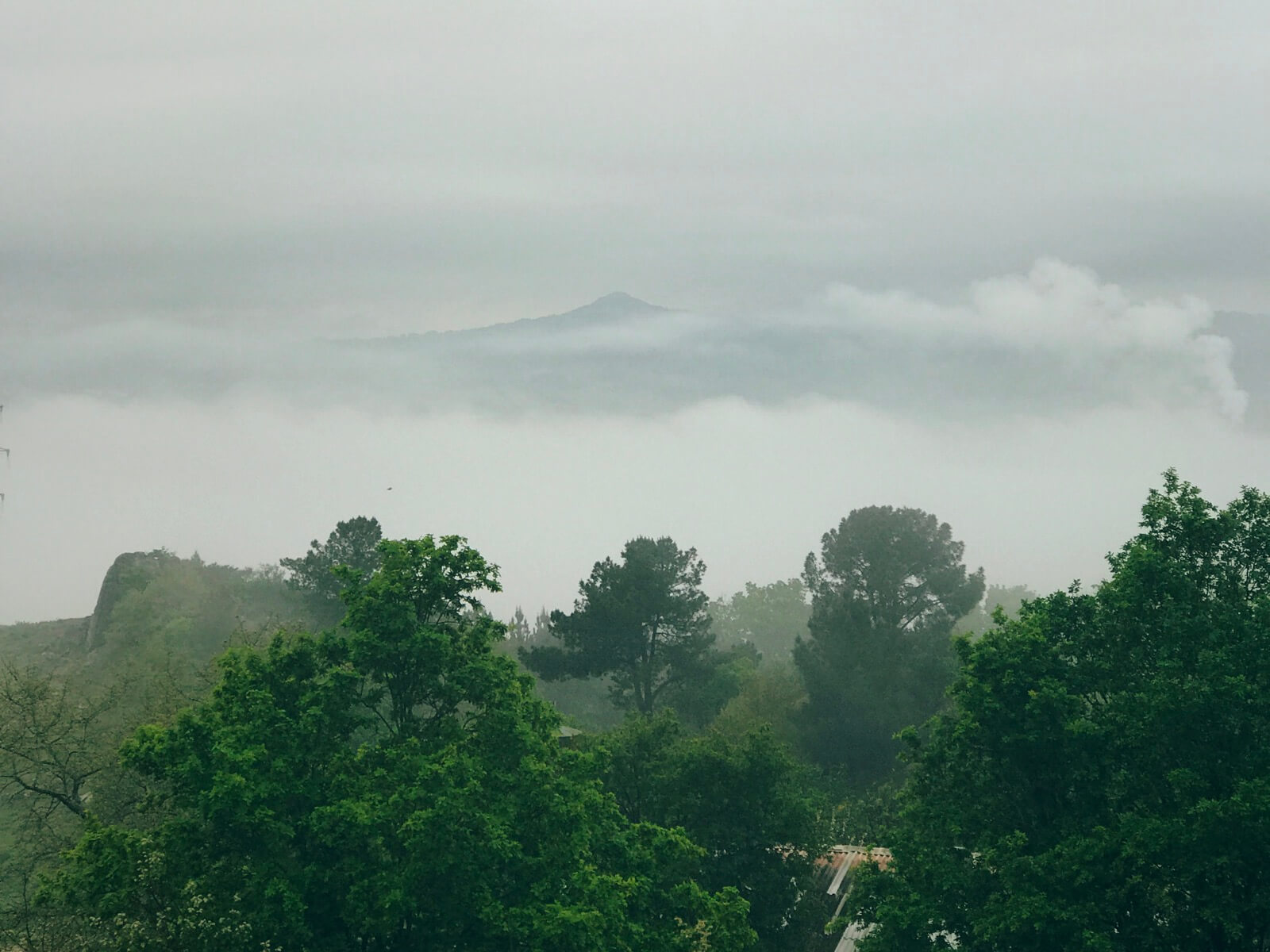
Historically, pandemics have forced humans to break with the past and imagine their world anew. This one is no different. It is a portal, a gateway between one world and the next. — Arundhati Roy
The weird thing about a paradigm-shifting pandemic is many of my habits haven’t changed significantly but how I feel about them, and pretty much everything else, has shifted. Every morning, I take a walk with my dog up the road. We pass the sign of our village’s name with the diagonal red stripe through it, the castaños, up until the small pig farm. Often I’d throw in an earbud and play whatever podcast I had been listening to the day before, but I’ve stopped, preferring the sound of the birds and maybe the wind rustling the trees. The town comes into view on the right and from our elevated position one can see it in its entirety. Sometimes, like today, it is shrouded in a thick fog, the small peak behind, whose name I’m unaware of, protrudes out.
I have bad habits. I wake up early but then use that time unproductively for at least an hour or so, reading news or scrolling through Twitter, a place increasingly fraught with melodrama and uninformed commentaries on events we cannot control. I occasionally put off my exercise routine until after my classes, when I’m already worn done and my body is tight from sitting in a chair. Most days, I get closer to beating these. Small victories, sure, but still.
Before meeting Patricia, I had a terrible grocery shopping philosophy. I would fill my basket with things that looked good and when I arrived at the checkout, I realized I had purchased snacks rather than ingredients for a meal. Then I’d come home, eat the snacks, and toward dinner, walk to one of Nouakchott’s restaurants for shawarma.
I was once enamored by the latest and greatest Apple products. Now I cannot stomach the thought of buying new things while my current tablet works fine. I am grateful for hand-me-down iPhones from family regardless of the broken speaker. Technology podcasts or Apple’s price tags for computer wheels further remind me of how materialistic I once was, how I’ve changed. How we can all change to better adapt to what many of our most brilliant minds, away from the political class, are telling us what’s coming.
Our success or failure, individually during this quarantine, and as a species and planet through the next decade vis-à-vis a very probable second wave of coronavirus, our vampiric capitalist realism, the fast-approaching climate tipping points, will depend on our self-discipline and willpower. Our bad habits, our biases, some of our conveniences, our lack of knowledge on things like agriculture. Individuated mobilization starts now.
“The life of a single human being is worth a million times more than all the property of the richest man on earth.”
Chances are, many of us in the West will not be governed by an authoritarian regime so soon. Or if we are, it will have an air of nominal liberty. Our ‘freedoms’ and political inaction, the hard questions needing to be asked, the work that needs to be done, will climatically doom those in the global South. No one will tell us what to do.
Só o pobo salva ao pobo
Only the people save the people
